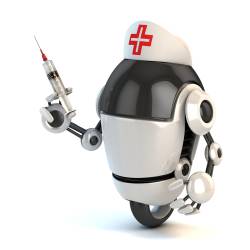Nano-medicine is a new and evolving field that deals with the nanotechnology aspects relating to medicine and how to apply them. Early implementations are used in diagnosis, prevention and treatment of various ailments such as: cancer, kidney failure, dentistry, MS and blood clots. The implantations rely on the use of nano-particles made up of biological and synthetic material. The goal is that in the future such apparatuses will be used to detect infected cells and tissue, to penetrate, scan, and release drugs or even completely destroy cells as needed.

Nanoplate in the service of medicine
Nanoplate has collaborated with academic institutions and different hospitals to facilitate and develop possible applications using nanotechnology. One example, is a
Anti-bacteria supplements
Harmful activity of bacteria and viruses exists almost everywhere, starting with keyboards and children’s toys and certainly in a much larger scope around public places like hospitals and public rest rooms.
One of the most troubling issues that an institution or body that deals with public health (hospitals, infirmaries, clinics, operation rooms etc.,) faces on an ongoing basis is preventing the spreading of infectious diseases.

A well-known problem is for visitors in public places like hospitals who are at risk of becoming infected when staying near patients. This is a sensitive issue that any hospital would be happy to have an effective solution to.
A Japanese technology provides us with a new family of supplements that can be inserted into anti-bacteria products, i.e. dyes, plastic material and various other substances (ceramic, rubber etc.). These products have been scientifically proven and are safe for use.
